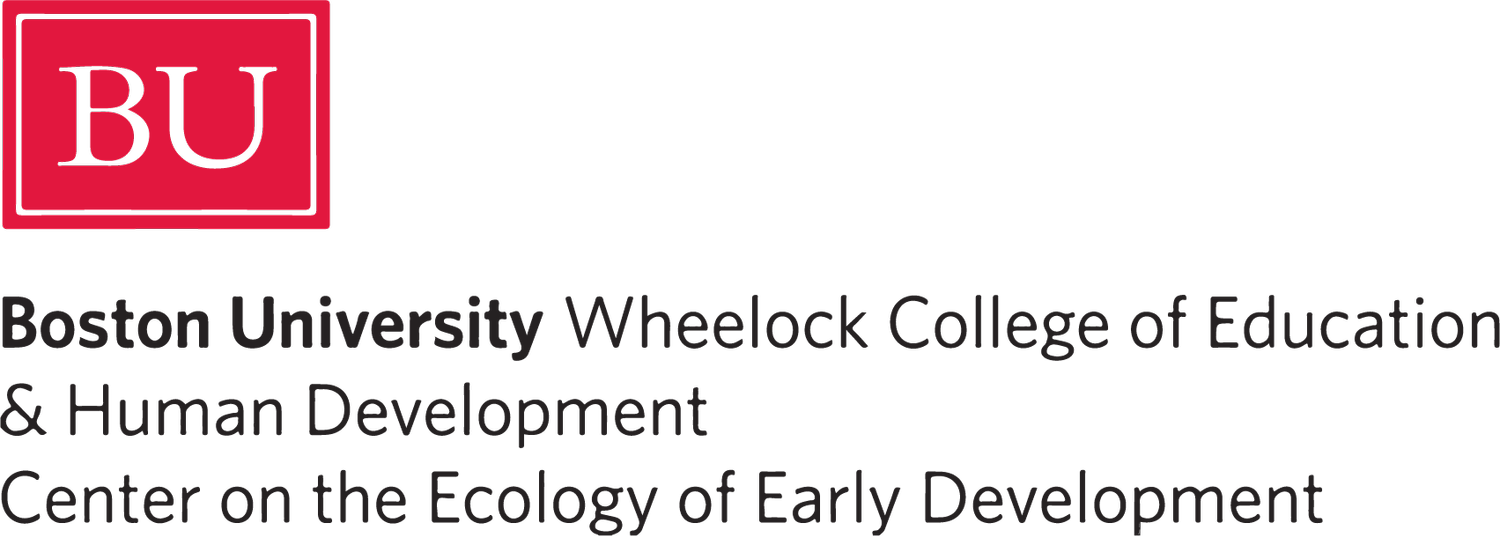CEED’s Statement Against the Acts of Violence in Atlanta
The mission of the Center on the Ecology of Early Development (CEED) is to conduct applied equity-focused research to inspire policy leaders and practitioners to cultivate health and education opportunities that optimize children’s wellbeing and ability to thrive, especially those children who are from racially marginalized identity groups. Although our research agenda solidly falls within the resilience and challenges of Black children, the fundamental structures and behaviors that negatively impact all racially marginalized children and families is strongly aligned with our values, knowledge, and expertise. We have always—and will continue to—speak out on behalf of all children and families who face racial, economic, or xenophobic violence anywhere. This is precisely why our racially and ethnically diverse team at CEED is compelled to speak out against the heinous serial murders of the victims in the Atlanta-area spas and the repeated assaults on elderly Asian Americans.
The violence perpetuated against the women in Atlanta was intentional and methodical and borne out of a unique intersectionality of racism and sexism that is targeted toward Asian women, a violence that is couched in objectification and exoticism. A violence that resulted in shattered families that will have long lasting trauma. The lives of these women and the loss to their families cannot be reduced to the emotional instability of a murderer with a gun nor can we accept minimization or excuses that detour from accountability for this act. These women’s lives need to be vindicated by a justice system that acknowledges racial and gender hate crimes as the sociopathic acts of violence that they are.
At CEED we stand firmly with our colleagues from the American Educational Research Association Early Education/Child Development Special Interest Group that denounce the shootings in Atlanta. We are both outraged and saddened that there has been a 149% increase in anti-AAPI hate crimes during 2020 that have stemmed from the COVID-19 stigma, and women, across all groups, were twice as likely to report being victims of such hate crimes. As child development scholars, we recognize that this level of racially targeted violence not only affects adults but also trickles down to children, causing them to worry and fear about the safety of themselves and their loved ones. Our outcry is not only toward systemic racism, discrimination, and xenophobia, but also toward the long-term psychological harm this violence is inflicting upon children’s and harms their mental health, physical health, and academic achievement.
CEED stands solidly in our value that ALL children deserve to thrive, and we offer our thoughts and resources to our fellow Asian Americans in hopes that we can help families promote racial healing and positive racial identity among children and youth by sharing stories of their ancestors and community members that have survived bigotry and racial violence of the past.
Last summer, CEED published a racially affirming book list for African American children, and months even before the hate crimes in Atlanta, we had decided to publish another book list for Asian American children. Our racially affirming book list for Asian American children is not complete yet, but we do have a special book to share that talks about the importance of names. We highlight this book in particular because the media has made several mistakes when pronouncing names of victims. And we know from #SayHerName that all too often the names of women who have succumb to violence are not acknowledged. It is as if violence against women is silenced.
We at CEED lift up the names of our sisters who have fallen to a brutal form of racialized sexual violence:
Soon Chung Park, age 74
Hyun Jung Grant, age 51
Suncha Kim, age 69
Yong Ae Yue, age 63
Delaina Ashley Yaun, age 33
Paul Andre Michels, age 54
Xiaojie Tan, age 49
Daoyou Feng, age 44
We believe that not only is it important to say their names, but it is important to say their names correctly.
As experts in children’s language and literacy development and advocates for children’s healthy development and positive racial identity, CEED suggests The Name Jar by Yangsook Choi. We offer this book as a resource that all families can use to educate children about the importance of honoring and respecting cultural diversity.
The story follows Unhei who just moved to America from Korea. When she tried to tell her classmates her name on the bus, they didn't say it properly and made fun of her. It made her feel insecure about her name, and she considered changing it to an English-sounding name. In the end, she decides to keep her Korean name with the help of her new friend, Joey.
There are others who join us in promoting multicultural literacy, like Lee and Low Books that is the top publisher of Asian American children’s books. At CEED, we believe that it is through our life stories that people learn to live in our full humanity, celebrating the challenges we have overcome, and inspiring hope for a more just and peaceful future.
Our hearts go out to our Asian American brothers and sisters, and we promise to stand as allies in a way that honors their stories, protects their futures, and lifts up their names.
- Center on the Ecology of Early Development Family


